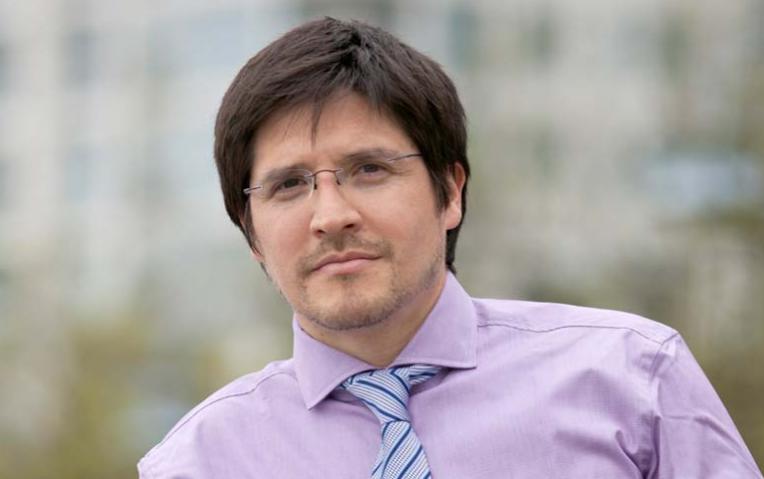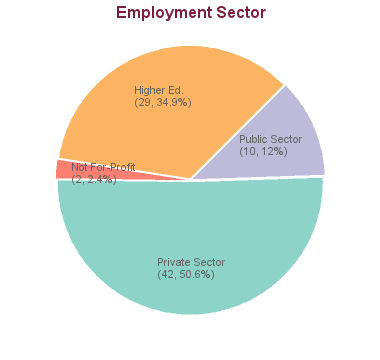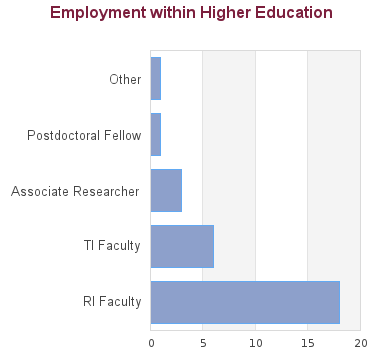
Freddy Pina
Job Title
President
Employer
PBRV Consulting Ltd.

Review details about the recently announced changes to study and work permits that apply to master’s and doctoral degree students. Read more
Civil engineering is a professional engineering discipline that deals with the design, construction, and maintenance of the natural and built environment. It is a very broad field made up of several sub-disciplines such as environmental engineering, construction engineering, geotechnical engineering, hydrotechnical engineering, materials engineering, structural engineering, and transportation engineering. Many of the sub-disciplines of civil engineering are themselves very broad and are made up of further distinguishable sub-disciplines. For example, hydrotechnical engineering includes water resources engineering, offshore engineering and coastal engineering.
The Faculty of Graduate and Postdoctoral Studies establishes the minimum admission requirements common to all applicants, usually a minimum overall average in the B+ range (76% at UBC). The graduate program that you are applying to may have additional requirements. Please review the specific requirements for applicants with credentials from institutions in:
Each program may set higher academic minimum requirements. Please review the program website carefully to understand the program requirements. Meeting the minimum requirements does not guarantee admission as it is a competitive process.
Applicants from a university outside Canada in which English is not the primary language of instruction must provide results of an English language proficiency examination as part of their application. Tests must have been taken within the last 24 months at the time of submission of your application.
Minimum requirements for the two most common English language proficiency tests to apply to this program are listed below:
Overall score requirement: 100
Reading
22
Writing
25
Speaking
21
Listening
22
Overall score requirement: 7.0
Reading
6.5
Writing
6.5
Speaking
6.5
Listening
6.5
Some programs require additional test scores such as the Graduate Record Examination (GRE) or the Graduate Management Test (GMAT). The requirements for this program are:
The GRE is optional.
Deadline to submit online application. No changes can be made to the application after submission.
Transcript DeadlineDeadline to upload scans of official transcripts through the applicant portal in support of a submitted application. Information for accessing the applicant portal will be provided after submitting an online application for admission.
Referee DeadlineDeadline for the referees identified in the application for admission to submit references. See Letters of Reference for more information.
All applicants have to submit transcripts from all past post-secondary study. Document submission requirements depend on whether your institution of study is within Canada or outside of Canada.
A minimum of three references are required for application to graduate programs at UBC. References should be requested from individuals who are prepared to provide a report on your academic ability and qualifications.
Many programs require a statement of interest, sometimes called a "statement of intent", "description of research interests" or something similar.
Students in research-based programs usually require a faculty member to function as their thesis supervisor. Please follow the instructions provided by each program whether applicants should contact faculty members.
Permanent Residents of Canada must provide a clear photocopy of both sides of the Permanent Resident card.
All applicants must complete an online application form and pay the application fee to be considered for admission to UBC.
Civil Engineering Materials, Environmental Engineering (Environmental Fluid Mechanics, Geo-Environmental, Pollution Control & Wastewater Management), Geotechnical Engineering, Hydrotechnical Engineering, Project & Construction Management, Structural Enginering (Earthquake Engineering), Transportation Engineering
| Fees | Canadian Citizen / Permanent Resident / Refugee / Diplomat | International |
|---|---|---|
| Application Fee | $116.25 | $168.25 |
| Tuition * | ||
| Installments per year | 3 | 3 |
| Tuition per installment | $1,875.34 | $3,294.66 |
| Tuition per year (plus annual increase, usually 2%-5%) | $5,626.02 | $9,883.98 |
| Int. Tuition Award (ITA) per year (if eligible) | $3,200.00 (-) | |
| Other Fees and Costs | ||
| Student Fees (yearly) | $1,144.10 (approx.) | |
| Costs of living | Estimate your costs of living with our interactive tool in order to start developing a financial plan for your graduate studies. | |
Applicants to UBC have access to a variety of funding options, including merit-based (i.e. based on your academic performance) and need-based (i.e. based on your financial situation) opportunities.
From September 2024 all full-time students in UBC-Vancouver PhD programs will be provided with a funding package of at least $24,000 for each of the first four years of their PhD. The funding package may consist of any combination of internal or external awards, teaching-related work, research assistantships, and graduate academic assistantships. Please note that many graduate programs provide funding packages that are substantially greater than $24,000 per year. Please check with your prospective graduate program for specific details of the funding provided to its PhD students.
All applicants are encouraged to review the awards listing to identify potential opportunities to fund their graduate education. The database lists merit-based scholarships and awards and allows for filtering by various criteria, such as domestic vs. international or degree level.
Many professors are able to provide Research Assistantships (GRA) from their research grants to support full-time graduate students studying under their supervision. The duties constitute part of the student's graduate degree requirements. A Graduate Research Assistantship is considered a form of fellowship for a period of graduate study and is therefore not covered by a collective agreement. Stipends vary widely, and are dependent on the field of study and the type of research grant from which the assistantship is being funded.
Graduate programs may have Teaching Assistantships available for registered full-time graduate students. Full teaching assistantships involve 12 hours work per week in preparation, lecturing, or laboratory instruction although many graduate programs offer partial TA appointments at less than 12 hours per week. Teaching assistantship rates are set by collective bargaining between the University and the Teaching Assistants' Union.
Academic Assistantships are employment opportunities to perform work that is relevant to the university or to an individual faculty member, but not to support the student’s graduate research and thesis. Wages are considered regular earnings and when paid monthly, include vacation pay.
Canadian and US applicants may qualify for governmental loans to finance their studies. Please review eligibility and types of loans.
All students may be able to access private sector or bank loans.
Many foreign governments provide support to their citizens in pursuing education abroad. International applicants should check the various governmental resources in their home country, such as the Department of Education, for available scholarships.
The possibility to pursue work to supplement income may depend on the demands the program has on students. It should be carefully weighed if work leads to prolonged program durations or whether work placements can be meaningfully embedded into a program.
International students enrolled as full-time students with a valid study permit can work on campus for unlimited hours and work off-campus for no more than 24 hours a week during academic sessions.
A good starting point to explore student jobs is the UBC Work Learn program or a Co-Op placement.
Students with taxable income in Canada may be able to claim federal or provincial tax credits.
Canadian residents with RRSP accounts may be able to use the Lifelong Learning Plan (LLP) which allows students to withdraw amounts from their registered retirement savings plan (RRSPs) to finance full-time training or education for themselves or their partner.
Please review Filing taxes in Canada on the student services website for more information.
Applicants have access to the cost estimator to develop a financial plan that takes into account various income sources and expenses.
96 students graduated between 2005 and 2013: 1 graduate is seeking employment; for 12 we have no data (based on research conducted between Feb-May 2016). For the remaining 83 graduates:


Many graduates from the Civil Engineering program at UBC use the knowledge and experience they gain from the broad academic program as a stepping stone to non-engineering careers, such as in business and management, or go on to other academic disciplines such as architecture or medicine.
Graduates from the Civil Engineering program at UBC who go on to practice as professional engineers are employed by small and large consulting engineering companies – some providing more specialized services and others more comprehensive services; engineering companies that provide large-scale infrastructure projects; crown corporations such as BC Hydro; and various levels of government – municipal, provincial and federal governments, and government branches and agencies
These statistics show data for the Doctor of Philosophy in Civil Engineering (PhD). Data are separated for each degree program combination. You may view data for other degree options in the respective program profile.
| 2023 | 2022 | 2021 | 2020 | 2019 | |
|---|---|---|---|---|---|
| Applications | 90 | 102 | 123 | 114 | 122 |
| Offers | 16 | 13 | 22 | 20 | 12 |
| New Registrations | 10 | 7 | 17 | 16 | 11 |
| Total Enrolment | 79 | 81 | 81 | 78 | 71 |
Students in research-based programs usually require a faculty member to function as their thesis supervisor. Please follow the instructions provided by each program whether applicants should contact faculty members.
These videos contain some general advice from faculty across UBC on finding and reaching out to a supervisor. They are not program specific.
| Year | Citation |
|---|---|
| 2022 | Dr. Banerjee's dissertation studied soil liquefaction under the influence of particle-level factors. He isolated these factors using numerical models to explore micro-macro connections. Fundamental insights from this cyclic loading-based analysis can be applied to the development of geo constitutive modeling and designing of granular materials. |
| 2022 | Engineers and professionals owe a duty to warn of impending risk. Dr. Taale has innovated a novel platform based on the IoT to transform environmental vibrations into earthquake early warnings. This platform utilizes earthquake engineering and artificial intelligence to warn the public, integrating early warning as a service in our daily lives. |
| 2022 | Dr. Fairhurst studied the effect of long duration megathrust earthquake motions on the structural response of reinforced concrete shearwall buildings. His work included novel methods of ground motion characterization along with recommendations to ensure new buildings at risk from megathrust earthquakes meet minimum safety standards. |
| 2022 | Dr. Kamel mitigated statical issues in modeling bike ridership and safety such as measurement errors and temporal correlation. He assessed the impact of land use, bike network, and demographics on bike ridership and safety. He supported urban planners by developing a zone-based index to represent both biking attractiveness and crash risk. |
| 2022 | Dr. Bagatini-Cachuço developed and implemented a seismic performance assessment framework for pre-engineered steel buildings in Canada. His findings significantly improved the design method for pre-engineered steel buildings thus making the Canadian infrastructure more resilient towards future earthquakes. |
| 2022 | Dr. Alsaleh developed novel artificial intelligent based microscopic simulation models for vulnerable road user interactions. His models showed high accuracy in predicting road user evasive action mechanisms. His research will aid in developing better understanding of road user behavior and studying various applications, including road user safety. |
| 2021 | Dr. Tobber proposed a novel building system to improve the seismic response of tall buildings. She led advanced simulation and large-scale experimental testing programs to study her system. Dr. Tobber is now an Assistant Professor at UBC Okanagan, where she continues her work making buildings safer and more resilient to natural disasters. |
| 2021 | Dr. Foroozand developed novel approaches to better estimate dependencies in sensor networks, which can support reduction and re-evaluation of high-density raingauge and streamflow networks. This, in turn, can optimize efficiency in future efforts to collect valuable information for modeling and support decision-making in water resource management. |
| 2021 | Dr. Soysa examined the shear behavior of sand-silt mixtures through an extensive experimental research program. He developed a new laboratory criterion to assess the seismic resistance of soils. His study advances the current state of knowledge and understanding of the strength and stiffness of soils. |
| 2021 | Dr. Ibrahim demonstrated that mobile automated speed enforcement increases safety by reducing collisions and crime incidence, and identified that changing the number of times an enforcement is visited can change the safety outcome. These novel findings can allow road agencies to maximize safety benefits by strategically deploying limited resources. |
Civil Engineering covers the following areas of specialization: civil engineering materials, environmental fluid mechanics, environmental systems engineering, geo-environmental engineering, geotechnical engineering, hydrotechnical engineering, project & construction management, structural & earthquake engineering, transportation engineering
Departments/Programs may update graduate degree program details through the Faculty & Staff portal. To update contact details for application inquiries, please use this form.

The metropolitan area is known for its diversity and UBC is one of the most international universities in Canada. This multicultural community means we have a wide range of restaurants, grocery stores, and events to provide a sense of belonging.